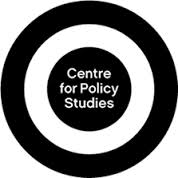
Swiss entrepreneurs are usually not considered to be very ambitious. A new study by the London based Centre for Policy Studies proofs this assumption wrong. Switzerland has one of the highest rates of “SuperEntrepreneurs”, self-made men and women who have earned at least $1 billion dollars through entrepreneurship.
The report SuperEntrepreneurs – and how your country can get them, by Tino and Nima Sanandaji, examines about 1,000 self-made men and women who have earned at least $1 billion dollars and who have appeared in Forbes magazine list of the world’s richest people between 1996 and 2010 – the SuperEntrepreneurs. These SuperEntrepreneurs founded half the largest new firms created since the end of the Second World War.
The proportion of SuperEntrepreneurs varies significantly across countries. Hong Kong has the most, with around three SuperEntrepreneurs per million inhabitants, followed by Israel, the US, Switzerland and Singapore.
The Top Ten countries on the list:
|
|
Total number of SuperEntrepreneurs |
SuperEntrepreneurs per million inhabitants |
|
Hong Kong |
20 |
2.8 |
|
Israel |
13 |
1.8 |
|
US |
411 |
1.3 |
|
Switzerland |
9 |
1.2 |
|
Singapore |
5 |
1.1 |
|
Norway |
5 |
1.0 |
|
Ireland |
4 |
0.9 |
|
Taiwan |
19 |
0.8 |
|
Canada |
23 |
0.7 |
|
Australia |
14 |
0.6 |
There is a strong correlation between high rates of SuperEntrepreneurship in a country and low tax rates. Equally, a low regulatory burden and high rates of philanthropy both correlate strongly with high rates of SuperEntrepreneurship.
The authors are sceptical with regard to active government and supranational programmes to encourage entrepreneurship – such as the EU’s Lisbon Strategy. In their view such programmes have largely failed. Their recommendation for governments is to encourage entrepreneurialism by lowering taxes (particularly capital gains taxes which have a particularly high impact on entrepreneurialism while raising relatively insignificant revenues); by reducing regulations; and by vigorously enforcing property rights.
The study can be downloaded for free from the website of the Centre for Policy Studies.























































Please login or sign up to comment.
Commenting guidelines